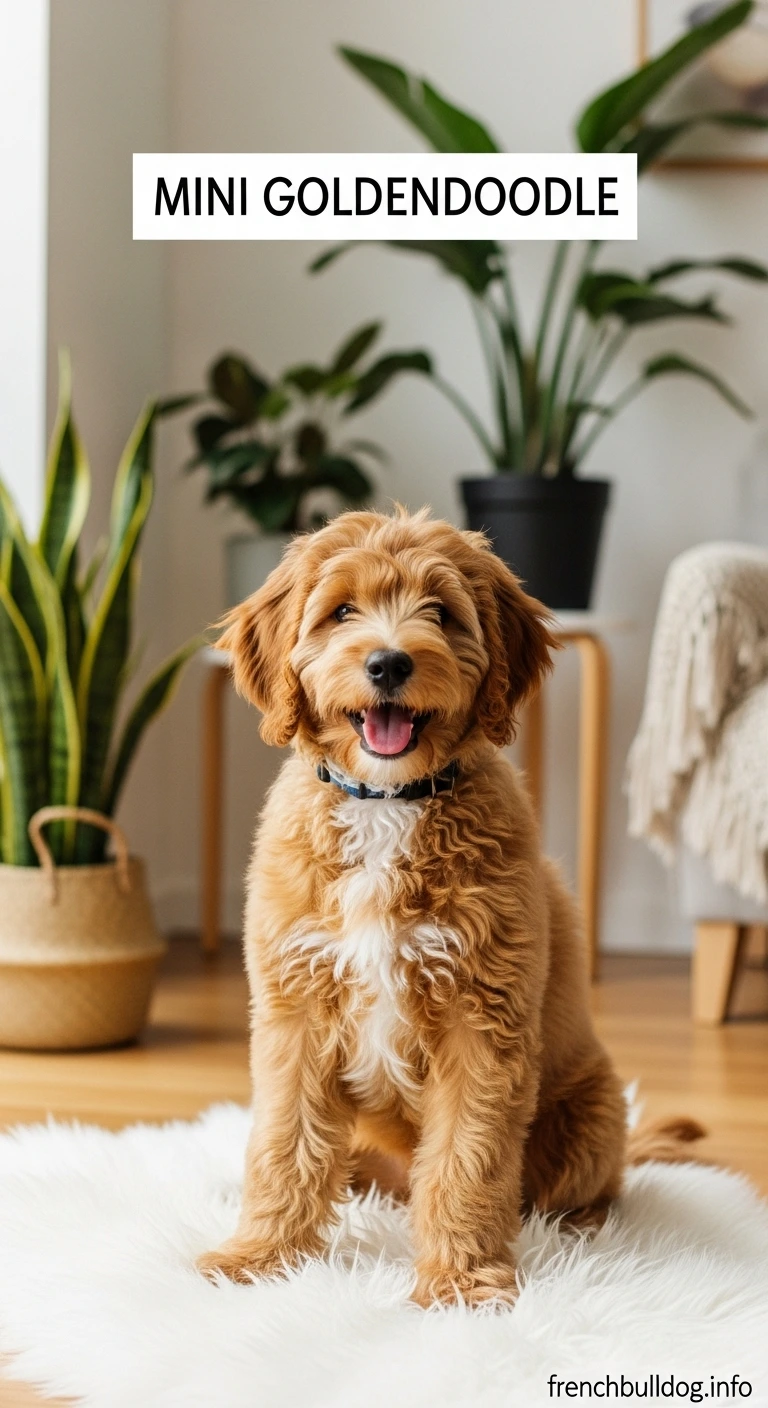Cavapoo Temperament: What Makes These Dogs So Lovable?
Cavapoos, the charming cross between a Cavalier King Charles Spaniel and a Poodle, are adored for their irresistible temperament, blending affection, playfulness, and intelligence into a delightful package. Often called Cavoodles, these designer dogs inherit the Cavalier’s gentle warmth and the Poodle’s sharp mind, making them ideal companions for families, singles, or seniors seeking a loyal, cuddly friend. This comprehensive guide dives deep into the Cavapoo temperament, exploring their personality traits, how they interact with people and pets, and tips for nurturing their best qualities, helping you decide if this lovable breed is the perfect fit for your home.
Understanding the Cavapoo Temperament
The Cavapoo temperament is a unique blend of traits from their parent breeds. The Cavalier King Charles Spaniel brings a sweet, affectionate nature, while the Poodle adds intelligence and a touch of playfulness. This combination results in a dog that’s loving, adaptable, and eager to please, with a personality that shines in various settings, from cozy apartments to lively family homes.
Key Traits of Cavapoo Temperament
Cavapoos are known for a distinct set of personality traits that make them stand out:
- Affectionate: Cavapoos thrive on human connection, often seeking cuddles and forming strong bonds with their owners. They’re happiest curled up beside you or greeting you with enthusiastic tail wags.
- Playful: Their energetic side loves games like fetch or chasing toys, making them fun companions for light activity.
- Intelligent: Inheriting the Poodle’s smarts, Cavapoos learn quickly, excelling in training and picking up tricks with ease.
- Sociable: They get along well with children, other pets, and strangers, making them ideal for social households.
However, their sensitivity means they respond best to gentle training, and their need for companionship can lead to separation anxiety if left alone too long.
How Cavapoos Interact with People
Cavapoos are people-oriented dogs, thriving in environments where they can engage with their owners and others.
With Owners
Cavapoos form deep attachments, often becoming their owner’s shadow. They love being involved in daily activities, whether it’s lounging during movie night or joining you for a walk. Their affectionate nature makes them excellent emotional support companions, as noted by owners on platforms like PuppySpot.
With Children
Cavapoos are gentle and patient, making them great for families with older kids who can handle their small size (8–25 pounds). Their playful energy matches well with children’s enthusiasm, but supervision is needed with younger kids to avoid accidental rough handling, as The Spruce Pets advises.
With Strangers
Their sociable streak means Cavapoos are typically friendly with strangers, often greeting guests with curiosity rather than aggression. Early socialization ensures they remain confident and welcoming in new situations.
Cavapoos and Other Pets
Cavapoos generally get along well with other animals, thanks to their friendly and non-dominant nature. They can coexist happily with dogs, cats, or smaller pets like rabbits, especially if introduced early. Their playful side makes them great playmates for other dogs, though they may need guidance to avoid overwhelming smaller animals. Socializing puppies with other pets, as recommended by Happy Oodles, helps them develop positive interactions.
Nurturing the Cavapoo Temperament
To bring out the best in a Cavapoo’s personality, focus on training, socialization, and a supportive environment.
Early Socialization
Start socializing your Cavapoo puppy as early as 8–12 weeks to build confidence. Expose them to different people, pets, sounds, and environments, like busy parks or quiet cafes. Positive experiences during this critical period, as noted by experts, shape a well-adjusted adult dog.
Positive Reinforcement Training
Cavapoos respond best to positive reinforcement due to their sensitive nature. Use treats, praise, or play to reward commands like “sit,” “stay,” or “come.” Harsh methods can make them anxious, so keep training sessions short (5–10 minutes) and fun, as suggested by training guides.
Managing Separation Anxiety
Their love for companionship can lead to separation anxiety, causing whining or destructive behavior when alone. To prevent this:
- Practice short absences, starting with a few minutes and gradually increasing.
- Provide engaging toys, like treat puzzles, to keep them occupied.
- Create a calm departure routine to reduce stress, as advised by pet behaviorists.
If anxiety persists, consult a professional trainer for tailored strategies.
Cavapoo Temperament in Different Settings
Cavapoos adapt well to various lifestyles, but their temperament shines brightest in environments that meet their social and activity needs.
In Apartments
Their small size and moderate energy make Cavapoos perfect for apartment living. They need daily walks (30–60 minutes) and indoor play to stay content, but their adaptability suits urban settings, as owners on social platforms often share.
In Family Homes
Cavapoos thrive in family environments with older kids or active adults. Their playful and gentle nature makes them great for households with regular interaction, though they may become clingy without enough attention.
With Seniors
Their affectionate and low-maintenance temperament makes Cavapoos ideal for seniors. They enjoy calm companionship but still need light exercise, like short walks, to stay healthy, as noted by rescue organizations.
Potential Behavioral Challenges
While Cavapoos are generally well-mannered, their temperament can present challenges if not addressed:
- Separation Anxiety: Their attachment to owners can lead to distress when alone. Gradual training helps them cope.
- Barking: Cavapoos may bark to alert or express excitement. Teach the “quiet” command to manage excessive vocalization.
- Sensitivity: Harsh tones or chaotic environments can stress them. Maintain a calm, consistent routine.
Early training and socialization, as emphasized by sources like Charlotte Dog Club, minimize these issues, ensuring a balanced temperament.
Exercise and the Cavapoo Temperament
A Cavapoo’s playful temperament requires regular physical and mental stimulation to stay balanced. Aim for 30–60 minutes of daily activity, such as:
- Walks in the park or neighborhood.
- Playtime with toys like balls or ropes.
- Interactive games, like hide-and-seek with treats.
Mental stimulation, like puzzle toys or training new tricks, keeps their intelligent minds sharp, preventing boredom-related behaviors like chewing, as noted in pet care blogs.
How Temperament Affects Training
The Cavapoo’s intelligent and eager-to-please temperament makes training straightforward. They excel at learning commands and tricks, often mastering basics within weeks. However, their sensitivity requires gentle methods:
- Use treats or praise to reinforce good behavior.
- Keep sessions short to maintain their attention.
- Avoid punishment, as it can cause anxiety or reluctance.
Consistency and patience, as recommended by trainers, ensure their temperament shines through as confident and cooperative.
Health and Temperament Connection
A Cavapoo’s temperament can be influenced by their health. Conditions like ear infections or dental pain may make them irritable, while a healthy diet and regular vet care support their cheerful disposition. Common health concerns include:
- Mitral Valve Disease: Affects mood if untreated; regular screenings are key.
- Luxating Patella: May reduce playfulness; monitor mobility.
- Ear Infections: Can cause discomfort; clean ears weekly.
A healthy Cavapoo is more likely to display their signature happy, affectionate temperament, as noted by vet resources.
Choosing a Cavapoo Based on Temperament
When looking for a Cavapoo, temperament is a key consideration. Reputable breeders, like those listed on PuppySpot, assess puppies’ personalities to match them with suitable homes. Ask about:
- The puppy’s behavior with littermates (playful or shy?).
- Parent temperaments, as traits are inherited.
- Early socialization efforts to ensure confidence.
Adopting an adult Cavapoo from rescues can also reveal their temperament, as they’re often past the unpredictable puppy phase.
Fun Facts About Cavapoo Temperament
Tips for Nurturing Cavapoo Temperament
To bring out the best in your Cavapoo’s personality:
Conclusion
The Cavapoo temperament affectionate, playful, intelligent, and sociable makes them a beloved companion for many lifestyles. Their love for people and adaptability suit families, seniors, or urban dwellers, though their sensitivity and need for companionship require dedicated care. By prioritizing socialization, gentle training, and regular exercise, you can nurture their best qualities, ensuring a loyal, joyful friend for years. Ready to welcome a Cavapoo? Start researching reputable breeders or rescues to find your perfect match!







